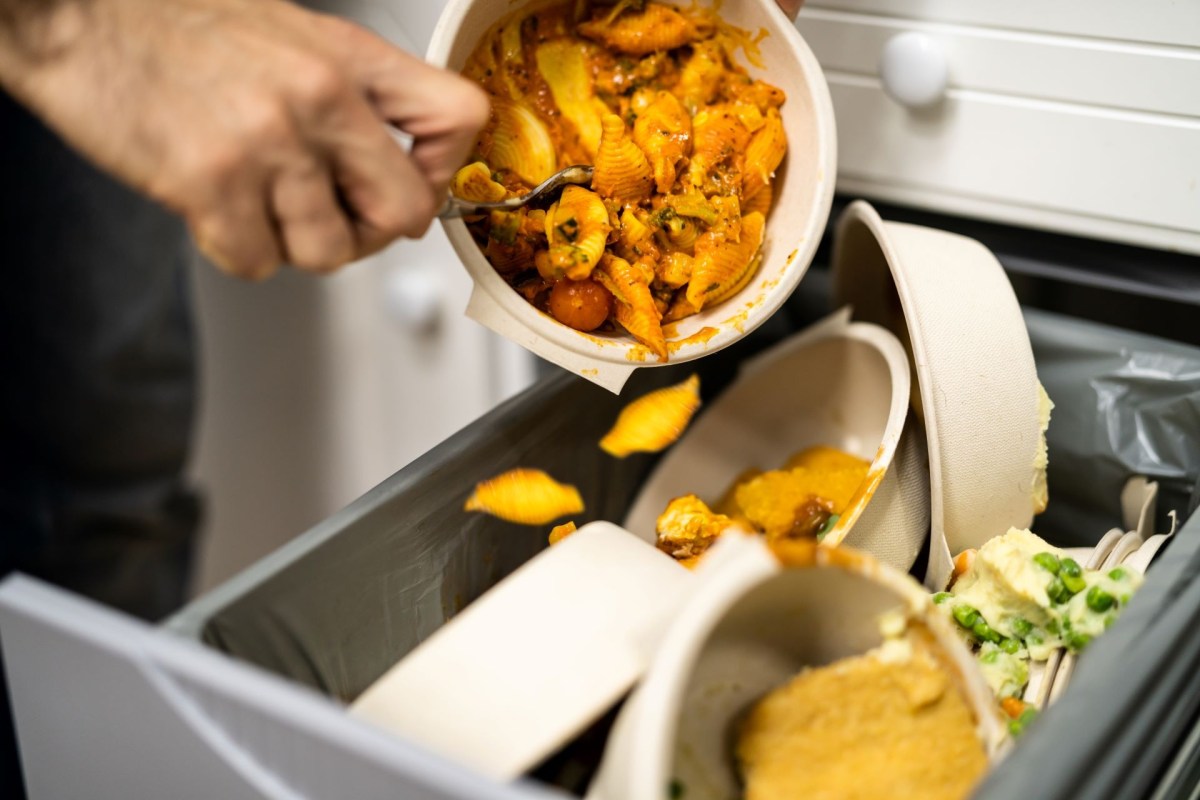Residents of central Ohio are getting a lesson from their kids in saving the environment and their money through a new education program about reducing food waste.
The Harvard School of Public Health refers to food waste as "food that is fit for consumption but consciously discarded." According to the nonprofit, ReFED, about one-third of the food in the U.S. goes uneaten or unsold each year. Most of this wasted food ends up in landfills, where it releases toxic gases into the air as it decomposes.
The Solid Waste Authority of Central Ohio — SWACO — is working to change that through social media and school campaigns that educate the public about composting and recycling. "You've got to have the support of everyday folks, of your families, of your residents,'' says Kyle O'Keefe, director of innovation and programs at SWACO.
Their first campaign consisted of 36,000 social media posts, newsletters, and postcards in the city of Upper Arlington, Ohio, advocating for composting and being mindful not to overbuy food. Results indicated that residents reported creating 23% less food waste, with hard data indicating 21% less food waste.
SWACO also began a campaign to educate elementary schoolers at Horizon Elementary school in Hilliard, Ohio, and other Hilliard City Schools. They placed bins in the cafeteria and taught students which items are compostable and recyclable and which go into landfills. They also provided a table where students could leave unopened food, such as chips or cheese sticks, to be eaten by someone else instead of thrown away.
The hope with this campaign is to turn composting and recycling into an everyday habit, something Americans have struggled with for decades. The philosophy is that "the youngest students may not have understood why they were separating their waste, but they would by the time they reached graduation."
This rang true, as parents reported that their children began encouraging money-saving and environmentally friendly habits: eating leftovers, buying less food, and taking less food at meals, because an individual could always go back for more.
Being mindful about food waste cuts down on excess spending — helping consumers to think twice about buying excess food — and is also good for the planet.
The New York Times reports that implementing these programs in all of the elementary schools in Hilliard County "diverted 100 tons of food, at least five school buses worth of waste, from the landfill" and saved $22,000 in the 2018-19 school year.
As for what the kids had to say about the program?
TCD Picks » Upway Spotlight

"You take eggshells and whatever and throw them in a bin," one student named Riley told the Times. "It shouldn't have to be a big deal."
Join our free newsletter for cool news and actionable info that makes it easy to help yourself while helping the planet.














